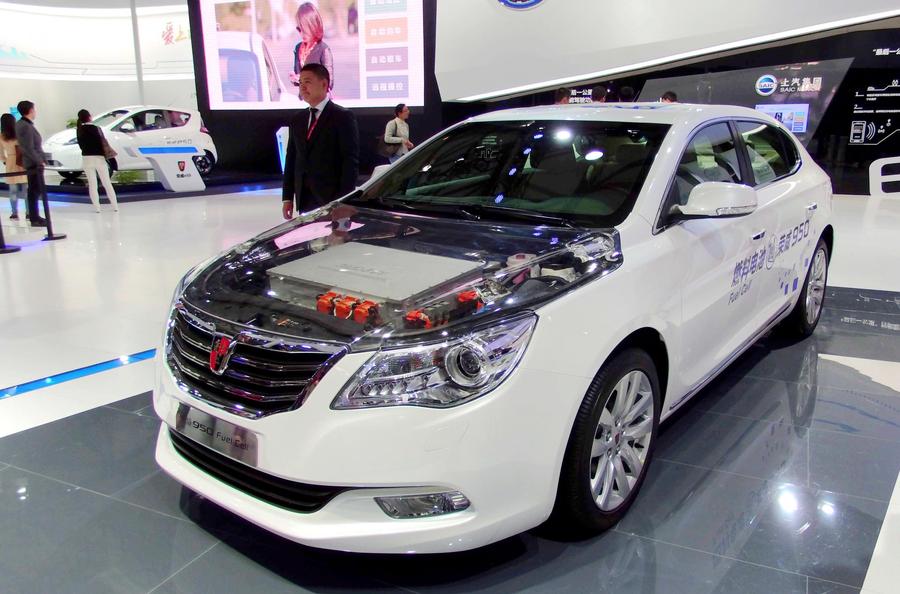 In this file photo, a SAIC Roewe 950 hydrogen fuel cell car is displayed at the SAIC Motor stand during the 16th Shanghai International Industry Fair on Nov 7, 2014.(PHOTO / ASIANEWSPHOTO)
In this file photo, a SAIC Roewe 950 hydrogen fuel cell car is displayed at the SAIC Motor stand during the 16th Shanghai International Industry Fair on Nov 7, 2014.(PHOTO / ASIANEWSPHOTO)
BEIJING / SHANGHAI - Chinese automakers have announced plans to increase sales of hydrogen fuel cell vehicles, a niche segment in the world’s biggest auto market, and the government is expected to announce supportive new policies, possibly as early as this month .
SAIC Motor, China's biggest automaker which has partnerships with Volkswagen AG and General Motors Co, said on Sunday it plans to sell over 10,000 hydrogen fuel cell vehicles and launch at least 10 models by 2025
SAIC Motor, China's biggest automaker which has partnerships with Volkswagen AG and General Motors Co, said on Sunday it plans to sell over 10,000 hydrogen fuel cell vehicles and launch at least 10 models by 2025.
ALSO READ: Hydrogen to drive clean energy moves
Wang Xiaoqiu, president of SAIC Motor, said the company would set up a special team to oversee research and development (R&D) and operation of its fuel cell project.
The company started its fuel cell vehicle project in 2001 and has invested more than 3 billion yuan (US$439 million) on R&D. It has obtained 511 patents in the fuel cell sector.
Commercial vehicle maker Beiqi Foton Motor, a BAIC's unit, said last week it aims to sell 4,000 hydrogen vehicles by 2023, and 15,000 such vehicles by 2025.
The announcements came after a finance ministry official said earlier in September that China will roll out a new package of policies to support hydrogen fuel cell vehicles.
ALSO READ: SAIC Motor stands out for 2020 performance
China now only has a fleet of over 7,000 hydrogen vehicles, compared with over 4 million pure battery electric and plug-in hybrid vehicles.
Current policies to support electric vehicles offer subsidies on sales. But new supportive policies will require local city governments and companies to build up a more mature supply chain and business model for the industry.
Three industry sources familiar with policy discussions said authorities could announce a new policy as early as this month.
Pilot cities will likely include Beijing, Shanghai, as well as those in northern Shanxi and eastern Jiangsu provinces, according to sources, who declined to be named as the issue is not public.
READ MORE: Speed, cost, convenience help propel demand for clean energy vehicles
The Finance Ministry did not immediately respond to a request for comment.
Some global automakers from Toyota Motor to Hyundai Motor have already announced plans for hydrogen vehicles in China.
According to a plan drawn up in 2016 by the Ministry of Industry and Information Technology, China will promote the application of 1 million vehicles and build up over 1,000 hydrogen filling stations by 2030.


